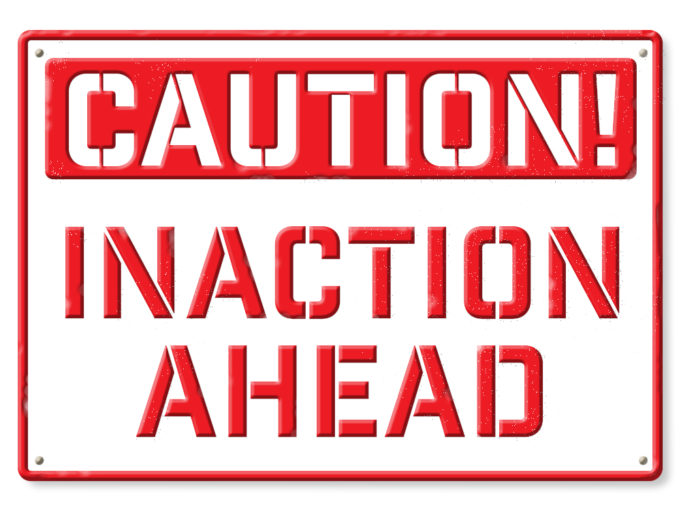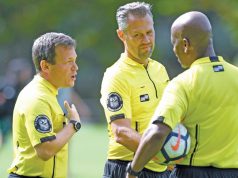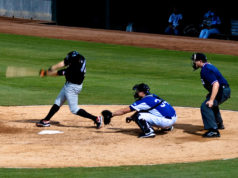The title isn’t a contradiction of terms, at least not if understood correctly. No matter what kind of game you are officiating, there are times when not much is going on. Even the game which, after it is over, you would describe as a “barn burner” and a “challenge from beginning to end” will have had periods of play when, in fact, hardly anyone was playing. Those seconds or (occasionally) minutes need to be used productively and taken like the gifts they are as opportunities during which you can get things done that were prevented by the other minutes of challenge.
In short, that is not the time to just stand still and rest. Between opening and closing whistles, no official can afford to take a nap. Most obviously, you never know when such moments of rest might be unexpectedly interrupted by critical, even game-changing events, no matter how apparently innocent the inactivity might be. More importantly, every such moment is valuable and must not be wasted.
Even the midgame break should be packed by an agenda of activities involving the officiating team. That is why you should not use it frivolously nor allow others to intrude for frivolous reasons.
There are many times when the ball leaves the field and, lacking formal “ball persons,” someone must retrieve it. Injuries and substitutions, once confirmed, don’t directly involve your presence or attention. At the other end of the spectrum are times when there is no formal stoppage but the play occurring then is so innocuous that it makes little or no demand on your powers of observation — an attacker coming out of the defensive end of the field who is unchallenged for control of the ball, for example.
Those are times when you must be actively doing things and not resting on your laurels. Here are four categories of “time users” which are limited only by your imagination and the nature of the game you are in.
What haven’t you done?
Reconnect to past events to see if there is something you could follow up on — a player who had returned from an injury or equipment problem or whom you had earlier admonished but has apparently reformed his or her behavior or who had committed a standout act of sportsmanship.
Assistant referees?
Haven’t had good eye contact recently? Play had been mostly down at one end of the field, so is the trail AR perhaps feeling lonely? Did the lead AR just provide good, important assistance regarding some event?
Cramping up?
Has the immediately preceding play been physically demanding … a sustained hard sprint perhaps? Continuing to move is way better than resting in order to be prepared for the next test of your fitness.
What’s next?
Relocate and fix in your mind the key players on both teams — the ones most likely to figure in the next phase of play. The information might suggest where you need to be so you can start earlier to respond better. High stress periods narrow your focus and you can lose track of that critical information.
To a spectator, it might seem as though you are inactive — not running, whistling, carding or otherwise “doing stuff,” but that should never actually be the case. There are important things you can do which are key elements of teamwork, player management and play evaluation that may not be obvious to others (except other referees). Use every moment productively. You can rest later — after the game and the postgame analysis and the reports and the missed dinner and … .
What's Your Call? Leave a Comment:
Note: This article is archival in nature. Rules, interpretations, mechanics, philosophies and other information may or may not be correct for the current year.
This article is the copyright of ©Referee Enterprises, Inc., and may not be republished in whole or in part online, in print or in any capacity without expressed written permission from Referee. The article is made available for educational use by individuals.


















